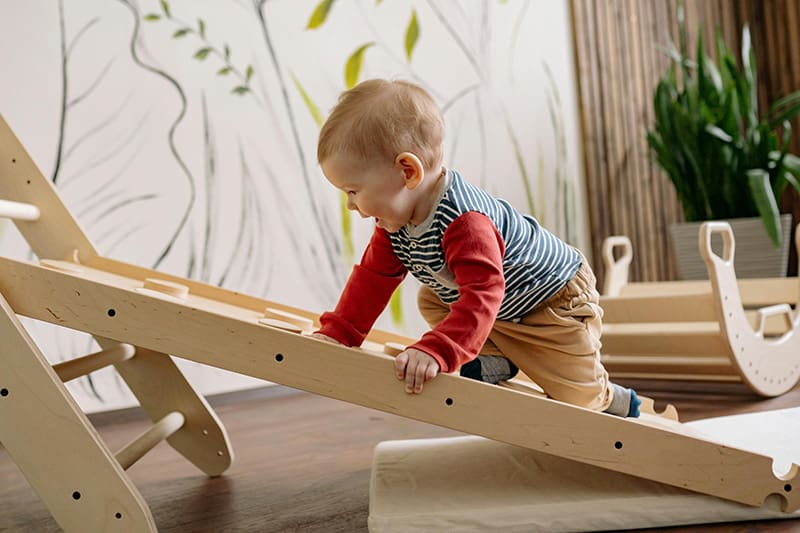Proprioception, often referred to as the “sixth sense,” is the body’s ability to sense its position, movement, and action. This sense is crucial for coordinating movements, maintaining balance, and executing fine motor tasks. For individuals with autism, proprioceptive processing can be challenging, impacting their daily lives. Applied Behavior Analysis (ABA) therapy, a widely recognized intervention for autism, can play a significant role in addressing proprioceptive difficulties. In this article, we will explore proprioception, its challenges in autism, and how ABA therapy can help improve proprioceptive functioning.
Understanding Proprioception
Proprioception is a complex sensory system that provides feedback to the brain about body position and movement. It involves receptors in the muscles, tendons, and joints that communicate with the central nervous system. This feedback allows us to perform tasks without consciously thinking about every movement, such as walking, typing, or catching a ball.
Proprioceptive Input
Proprioceptive input is the information that the brain receives from the body’s sensory receptors. This input helps individuals understand where their body parts are in space and how they are moving. For example, proprioceptive input allows you to close your eyes and touch your nose accurately or walk without looking at your feet.
Proprioceptive Dysfunction in Autism
Many individuals with autism experience proprioceptive dysfunction, meaning their brain struggles to interpret proprioceptive input correctly. This can result in a variety of challenges, including:
- Coordination Difficulties: Difficulty with activities that require coordinated movements, such as running, jumping, or climbing.
- Poor Balance: Challenges in maintaining balance, leading to frequent falls or unsteady gait.
- Fine Motor Skills: Trouble with tasks that require precise movements, such as writing, buttoning clothes, or using utensils.
- Sensory Seeking or Avoiding Behaviors: Some individuals may seek intense proprioceptive input (e.g., crashing into objects, squeezing tightly) while others may avoid certain movements or positions.
The Role of ABA Therapy in Addressing Proprioceptive Dysfunction
Applied Behavior Analysis (ABA) therapy is an evidence-based intervention that focuses on improving specific behaviors and skills. ABA therapy can be highly effective in addressing proprioceptive dysfunction in individuals with autism through targeted strategies and interventions.
Individualized Assessment and Goals
ABA therapy begins with a comprehensive assessment to identify the individual’s strengths and challenges, including proprioceptive difficulties. Based on this assessment, a personalized treatment plan is developed, outlining specific goals and objectives. These goals may include improving balance, coordination, and fine motor skills.
Sensory Integration Techniques
ABA therapists often incorporate sensory integration techniques to help individuals with autism process proprioceptive input more effectively. Sensory integration involves providing structured sensory experiences to help the brain organize and interpret sensory information. Examples of sensory integration techniques include:
- Weighted Vests and Blankets: These provide deep pressure input, which can be calming and help improve body awareness.
- Swinging and Rocking: Activities that provide vestibular input, helping with balance and coordination.
- Joint Compression Exercises: Exercises that involve pressing joints together, providing proprioceptive feedback.
Reinforcement and Motivation
A core principle of ABA therapy is the use of positive reinforcement to encourage desired behaviors. For individuals with proprioceptive difficulties, therapists may use reinforcement to motivate engagement in activities that provide proprioceptive input. For example, a child might be rewarded for completing an obstacle course that challenges their coordination and balance.
Task Analysis and Skill Building
ABA therapists use task analysis to break down complex activities into smaller, manageable steps. This approach is particularly useful for teaching skills that require proprioceptive input. By mastering each step individually, individuals can gradually build the skills needed for more complex tasks. For instance, writing might be broken down into steps such as holding a pencil correctly, forming individual letters, and eventually writing words and sentences.
Consistency and Generalization
Consistency is key in ABA therapy. Therapists work closely with families, teachers, and other caregivers to ensure that strategies are implemented consistently across different environments. This helps individuals generalize their proprioceptive skills to various settings, such as home, school, and community.
Success Stories: Proprioception and ABA Therapy
Case Study: Improving Coordination
A young boy named Alex struggled with coordination and balance due to proprioceptive dysfunction. His ABA therapist developed a treatment plan that included sensory integration techniques and structured activities to improve his proprioceptive processing. Over time, Alex showed significant improvements in his ability to run, jump, and climb with confidence.
Case Study: Enhancing Fine Motor Skills
Sarah, a teenager with autism, had difficulty with fine motor tasks such as writing and using utensils. Her ABA therapist used task analysis to teach her each step involved in these tasks. Through consistent practice and positive reinforcement, Sarah developed the fine motor skills needed for greater independence in daily activities.
Proprioceptive dysfunction can pose significant challenges for individuals with autism, impacting their coordination, balance, and fine motor skills. However, with the right interventions, these challenges can be addressed effectively. ABA therapy, with its individualized approach and evidence-based strategies, offers a powerful tool for improving proprioceptive functioning in individuals with autism. By incorporating sensory integration techniques, task analysis, and positive reinforcement, ABA therapy helps individuals develop the skills needed to navigate their world with confidence and independence.
At Chicago ABA Therapy, we are committed to providing personalized, high-quality ABA therapy to support individuals with autism in reaching their full potential. If you or a loved one is experiencing proprioceptive challenges, contact us today to learn more about how our ABA therapy services can help.










